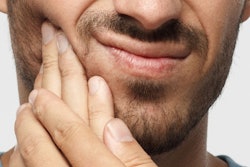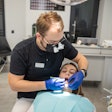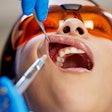Dear DrBicuspid Member,
Oral surgeons transplanted a woman's third molar to replace another tooth they had extracted because of infection. Two years later, the transplanted molar had vitality and was in good periodontal and functional health. Our top story of the week covers the details in this successful autotransplantation case.
If patient cases interest you, you may also like our coverage of a case report in which the neurotoxin marketed under the brand name Botox, Jeuveau, and Xeomin was used to reduce myofascial pain in a woman with a nonodontogenic toothache. The woman had experienced pain in multiple teeth that did not improve with root canal treatment, but an injection of the neurotoxin eventually decreased her pain to nothing.
Hygienists are having a big impact
Two big stories on our site this week point to the power of hygienists in the dental field.
In the first article, researchers measured hygienists' scope of practice against preventable dental emergency department visits. In general, states that give hygienists more autonomy and an expanded scope of practice have fewer preventable nontraumatic dental visits at emergency rooms, the data showed.
Another story making headlines is the continued effect of the COVID-19 pandemic on the hygiene workforce. Less than half of hygienists who left their place of employment early in the pandemic have returned, according to collaborative research from the American Dental Hygienists' Association and the ADA.
The good news? The survey data showed that hygienists had lower rates of SARS-CoV-2 infection than the general U.S. population. In addition, more than 75% of surveyed hygienists have been fully vaccinated against COVID-19.
New data on fluoride and IQ
A few years ago, an international research team made headlines when their study reported that children with greater prenatal fluoride exposure had lower IQ scores as preschoolers. Well, that research team is back with another study bound to be a topic of discussion in dentistry.
In the new study, prenatal fluoride exposure was significantly linked with nonverbal and verbal IQ losses in children ages 6 to 12. There was also a significant negative relationship between maternal urine fluoride concentration and IQ scores in children ages 4 and 5.
Dental Dose is back
Last but not least, our popular, twice-monthly pharmacology video series with Cuspies award winner Tom Viola, RPh, is back. On this week's episode of Dental Dose, Viola shares a few quick tips to help you take a complete and accurate medical history.



















